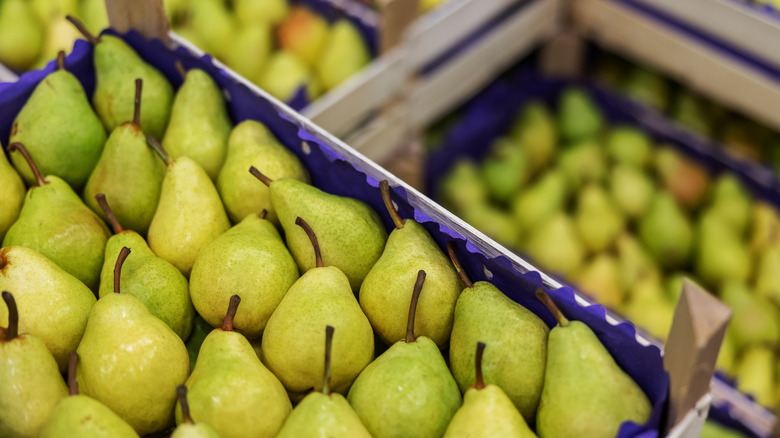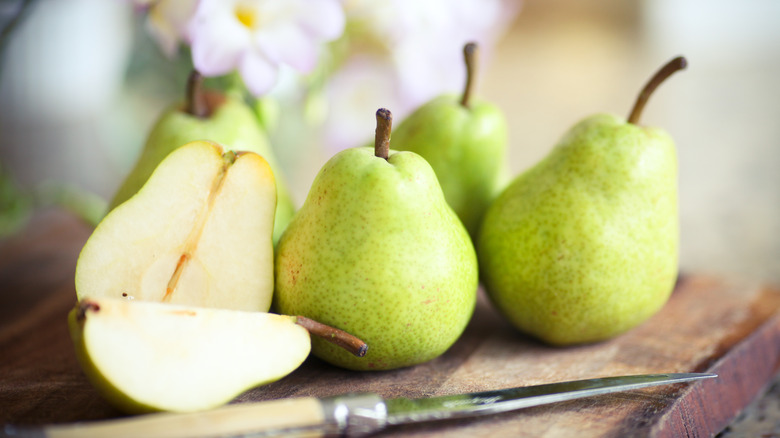The Best Way To Store Pears For Ultimate Freshness
With fall's cooler temperatures and shorter days comes an abundant pear harvest. Like tomatoes, pears ripen from the inside out, making it a little trickier to tell when they're ready to eat, as they're past their prime once soft to the touch. Pears are fully ripe once the stem end gives slightly when pressed — but once you've reached this magical stage, what's the best way to preserve that fresh pear flavor?
To keep fully ripe pears at peak freshness, be sure to store them in a paper bag in your fridge's crisper drawer, where they can last for up to a week . The cold, low-humidity drawer keeps the fruit's natural sugars from fermenting during storage and rotting the flesh. (The crisper is also ideal for storing apples, ripe bananas, melons, peaches, and plums.) Keep in mind that storing pears in the fridge slows the ripening process, but doesn't completely stop it. Be sure to inspect the fruits before and during storage and use heavily bruised pears right away, or you risk spoiling the whole bunch.
Ripening and preserving pears in the freezer
As American poet Ralph Waldo Emerson once said, "There are only ten minutes in the life of a pear when it is perfect to eat." But unripe pears have their upsides — they can keep for months in the fridge, which means that a bountiful fall harvest can be enjoyed throughout the winter months. On the other hand, to induce ripening, leave unripe pears on the counter at room temperature for three to 10 days. To speed up the process, pears can be left near ethylene gas-producing fruits (such as bananas), or placed in a brown paper bag to trap their own ethylene — similar to this to ripen avocados. The gas is a natural compound that speeds up ripening.
When it comes to overripe pears, there's not much to be done storage-wise. They need to be consumed or preserved, or they will quickly become inedible. As long as the pears still look and smell good, they should be fine to use; however, the visible presence of mold or an off-putting odor is a surefire sign to toss them in the trash.
Like most fruits past their prime, older pears are best for cooking down into jellies and jams, or simmering into a smooth, spreadable pear butter. They can also be mashed and added to smoothies, or stirred into pancake batter a la banana pancakes. If you can't eat them all at once, slice them, brush with a lemon juice/water mixture to prevent browning, and freeze on cookie sheets until solid, before packing them in freezer-safe, zip-top bags.


